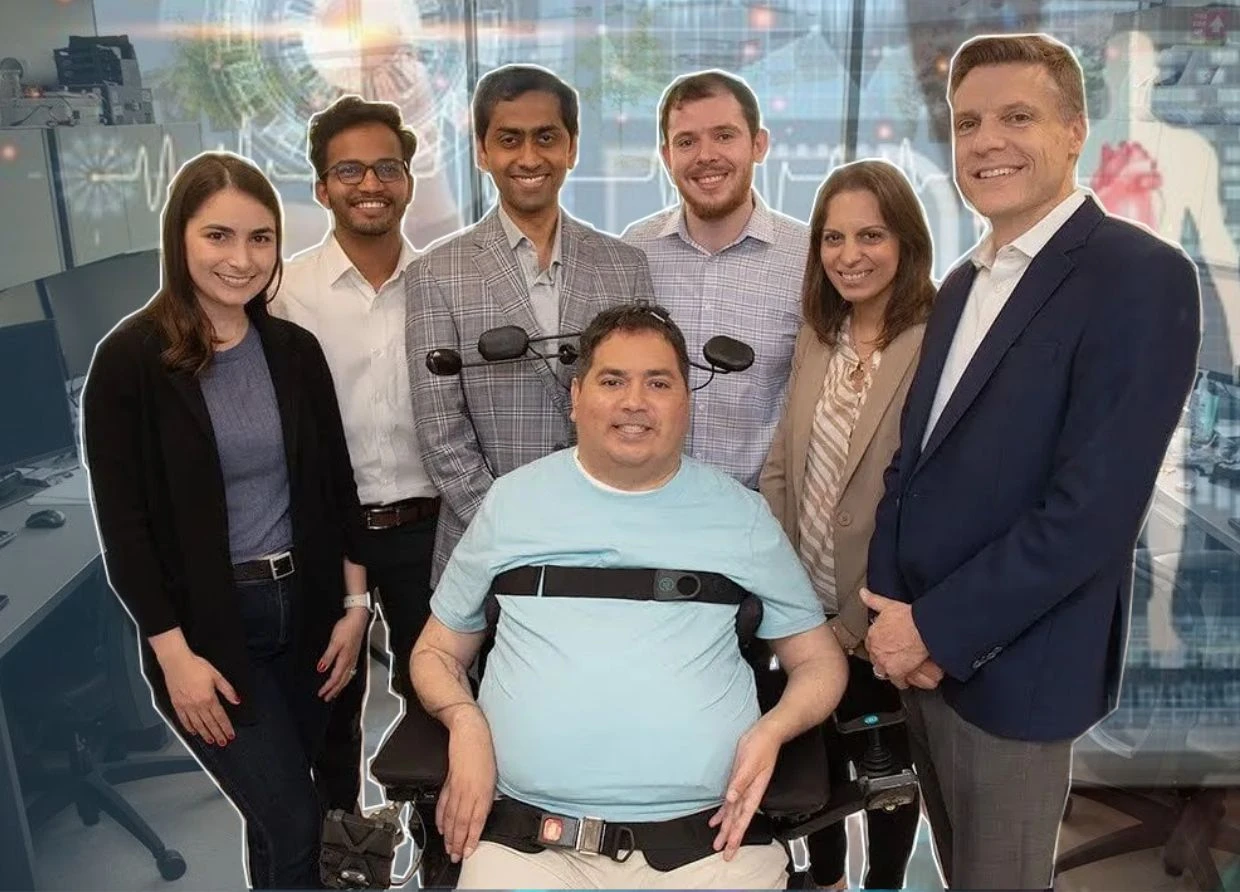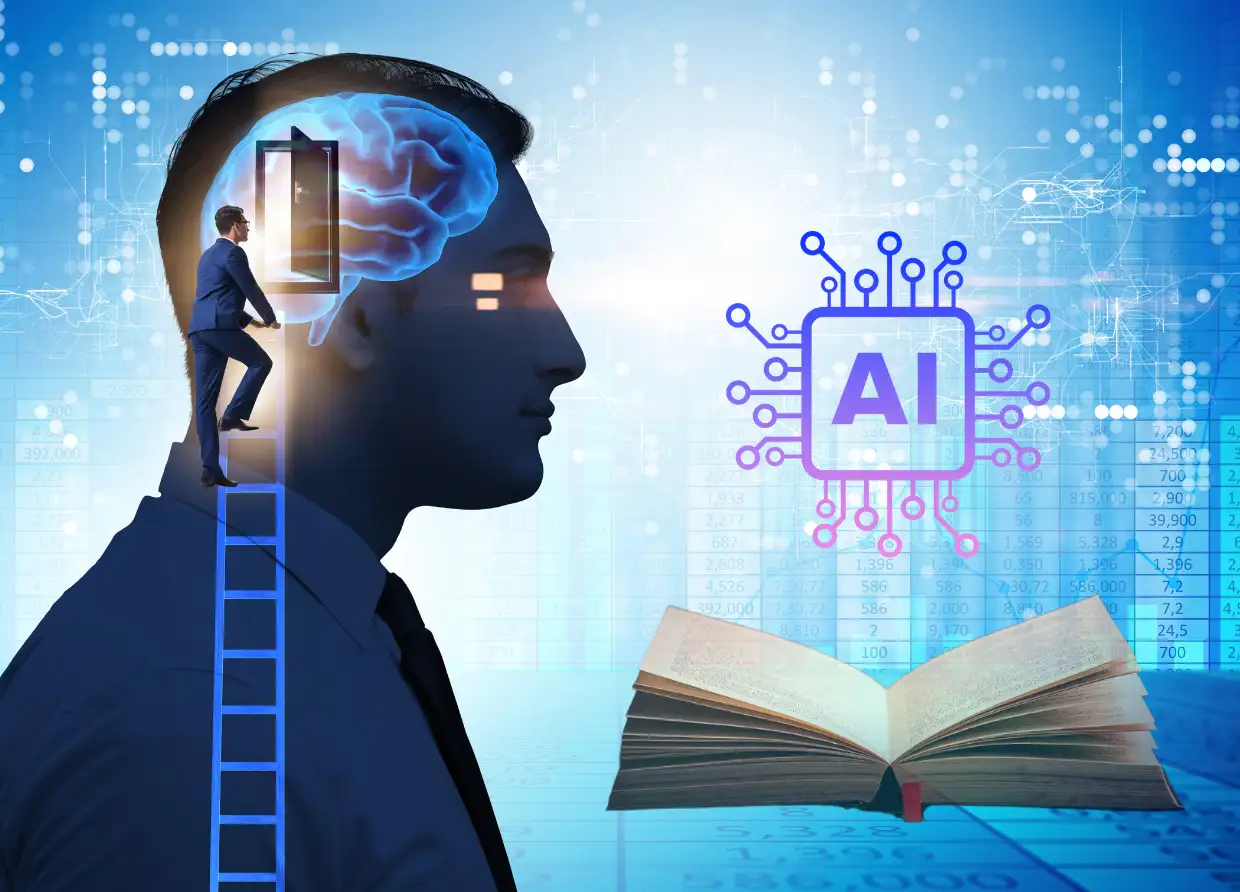REVOLUTIONIZING PARALYSIS TREATMENT: AI BRAIN IMPLANTS ENABLE QUADRIPLEGIC TO MOVE AND FEEL AGAIN
Groundbreaking Research at Northwell Health's Feinstein Institutes Restores Mobility and Sensation in Paralyzed Patient Using AI-Driven Neural Bypass

In a groundbreaking medical achievement, scientists at Northwell Health's Feinstein Institutes have successfully used AI-powered brain implants to restore movement and sensation for a man who had been paralyzed from the chest down. Keith Thomas, 45, became quadriplegic following a devastating diving accident that damaged his C4 and C5 vertebrae in 2020. Now, thanks to the pioneering work of researchers, Thomas can move his arm with just his thoughts and, astonishingly, experience the sensation of touch once again after three years.
The revolutionary "double neural bypass" procedure was key to this extraordinary progress. Surgeons implanted microchips in the regions of Thomas' brain responsible for controlling movement and touch sensation in the hand. These chips interface with AI algorithms that establish a "re-link" between his brain, body, and spinal cord, translating his thoughts into actions.
When Thomas thinks about moving his arm, signals from the brain chip activate a series of electrode patches on his spine and arm muscles, stimulating the desired movement. Additionally, tiny sensors on his fingers send touch information back to his brain, creating the sensation of feeling, thus bypassing his spinal injury.
Remarkably, within just four months of receiving the implants, Thomas has more than doubled his arm strength. Researchers believe that with repeated use of the bypass, the brain, body, and spinal cord could reestablish forgotten communication pathways, potentially leading to lasting natural recovery over time.
Lead researcher Chad Bouton described the breakthrough as a "game-changer" and expressed their vision of providing people with paralysis the ability to lead fuller, independent lives in the future.
While the surgery was complex and arduous, taking 15 hours and requiring Thomas to be awake for certain parts, the results are promising. This breakthrough builds upon previous single neural bypasses used in labs to control paralyzed limbs with thoughts, but this two-pronged approach is the first to provide touch feedback and restore physical movement outside the lab.
The potential applications of mind-machine interfaces are vast, and as researchers continue to refine the technology, they envision a future where neural implants could offer life-changing mobility and independence to many.
The fusion of AI and neurotech has ushered in a new era of bionic breakthroughs, transforming the realm of medicine and human capabilities. With technology like Elon Musk's Neuralink striving for similar achievements, AI is becoming a key component in amplifying the utility of neural implants.
The year has been marked by notable medical advancements driven by AI, from understanding protein language to predicting cancer treatment outcomes. As we witness the convergence of technology and medicine, the possibilities of AI-assisted enhancements and breakthroughs in various fields seem boundless.
With these technological advancements, however, comes great responsibility. Scientists must grapple with the ethical implications of invasive procedures and enhancements. Nonetheless, one thing remains certain: technology is reshaping the boundaries of human potential and what it means to be human.
#THE S MEDIA #Media Milenial #AI brain implants #quadriplegic #medical breakthrough #neurotechnology #paralysis treatment #Northwell Health #Feinstein Institutes #mind-machine interface #neural bypass #sensation restoration #mobility enhancement #spinal injury #medical innovation #ethical implications #neurotech convergence #AI-assisted healthcare


























